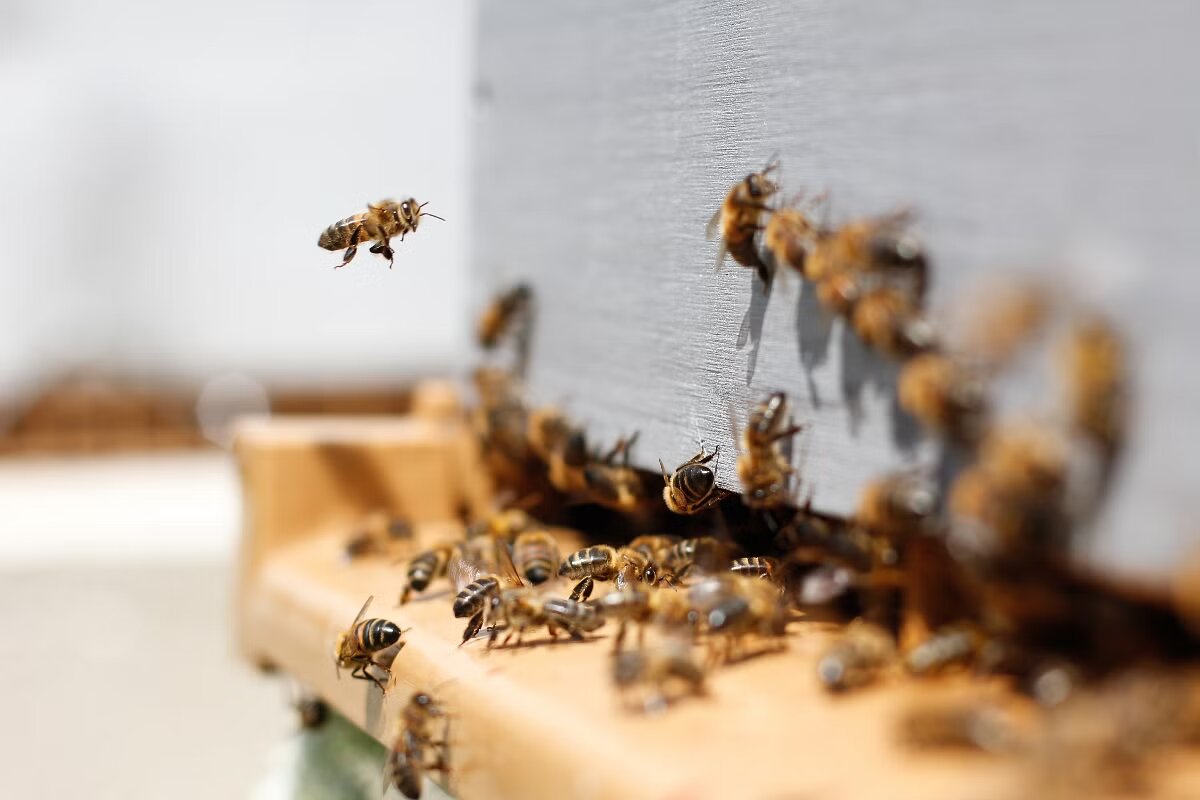The Border Security Force (BSF) has tried something new by putting beehives on the India-Bangladesh border fence in West Bengal. The goal is to stop people from cutting the fence to sneak cattle across the border and commit other crimes, and to help the locals make a living.
A senior officer said that the BSF’s 32nd company recently started the first project of its kind in the border areas of Nadia district. The goal is to protect the borders and help the local people through apiculture.
The border between India and Bangladesh is 4,096 km long, with West Bengal making up about 2,217 km of that.
The BSF has asked the Ayush ministry to work on the project. The beehives and the know-how to put them on the alloy “smart fence” were given to the border defense force by the ministry.
The idea came from Sujeet Kumar, Commandant of the 32nd BSF battalion. The force is doing this as part of the Center’s “Vibrant Village Program” (VVP). They have also asked the Ayush ministry to give them medicinal plants with flowers that can be planted around the bee boxes to get a lot of pollen from the bees.
“On November 2, the idea of attaching beehives to the fence between India and Bangladesh was first brought up. “The BSF will make sure that these bee boxes are available to locals who keep bees, and the villagers have been very supportive of this initiative,” he said.
Cross-border crimes like smuggling drugs, cattle, gold, and silver are common in the Nadia district, which is part of the South Bengal frontier of the BSF, according to officials. In the past, criminals and smugglers have cut or attempted to cut the fence to do their illegal activities.
A BSF official said that the beehives on the fence will keep people from trying to cut the fence because doing so will bother the bees, and a swarm attack by the bees can badly hurt them.
The official, who asked to remain anonymous, said that the bee boxes are being put on the fence with a wooden support frame at regular intervals and in places where people are likely to try to sneak things over. The exact numbers cannot be released.
He said that the Ayush ministry gave the BSF young plants of medicinal plants like tulsi, ekangi, satmuli, ashwagandha, and aloe vera. These plants are being planted in the border areas by both the BSF and the people.
People are also planting mustard, and there was a public camp not long ago in Kadipur village of Nadia. At the camp, the people there were told that the honey they get from the beehives will be sold through the BSF Wives’ Welfare Association’s created setup and shops. A government official said that the money made from selling the honey would go to the people who live there.
Ayush ministry officials also told the BSF that locals told them that the mango trees in the area weren’t producing good fruits. However, because of beekeeping near the border, these plants could start producing good fruits, which will help the villagers make more money.
Honeybees hover over flowers to find food, and as pollinators, they are very important to the growth of many crops that feed people around the world. Bees are in charge of pollinating almost all plants in the world, such as nuts, fruits, and veggies. Experts from the Ayush ministry told the officials that food yields around the world could drop by up to 35% if bees weren’t around.
The BSF is the main group in charge of protecting the front between India and Bangladesh. The newly launched “Vibrant Village Program” by the Union government aims to help the faraway and remote areas on the front grow in all areas.
